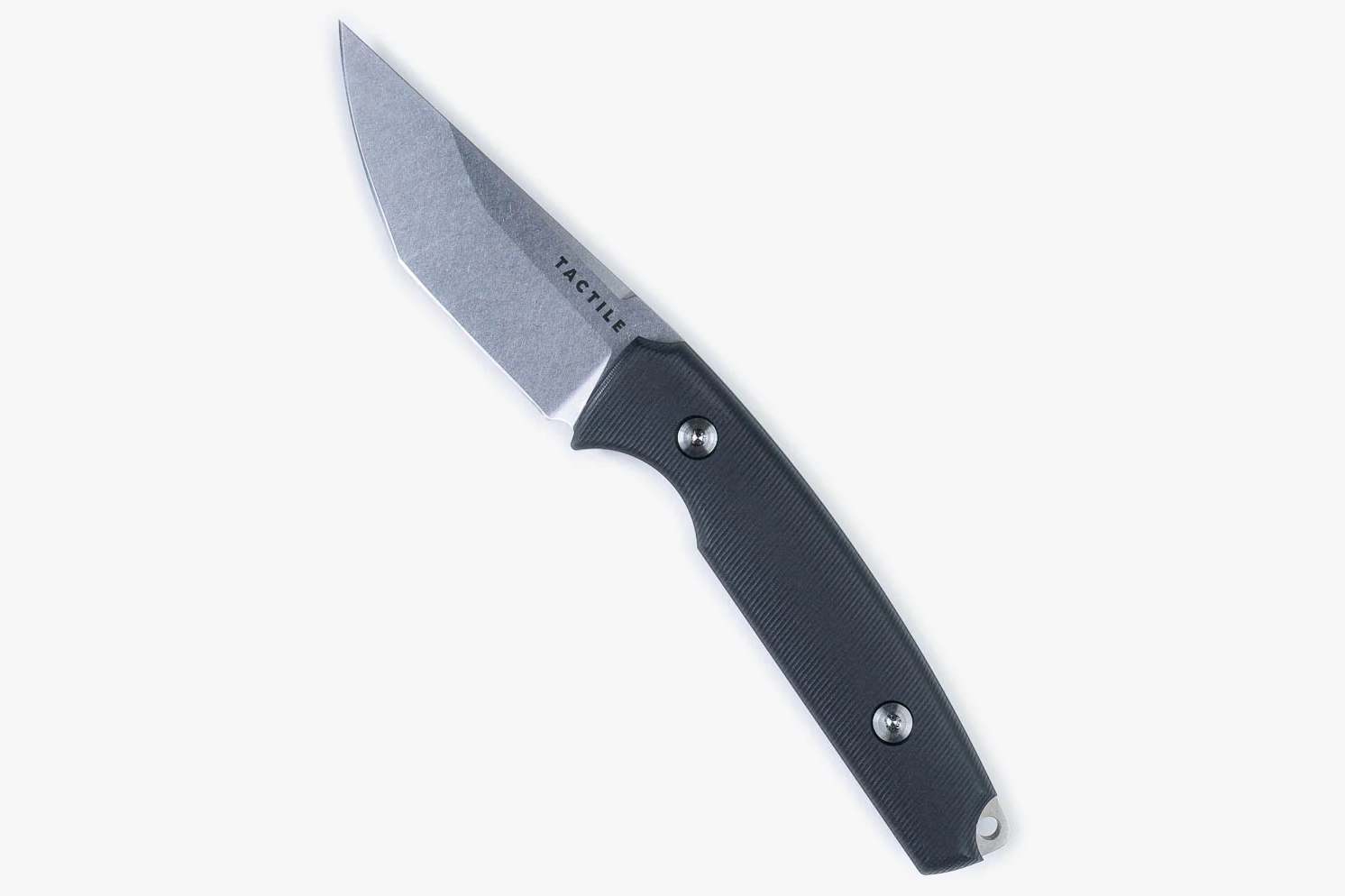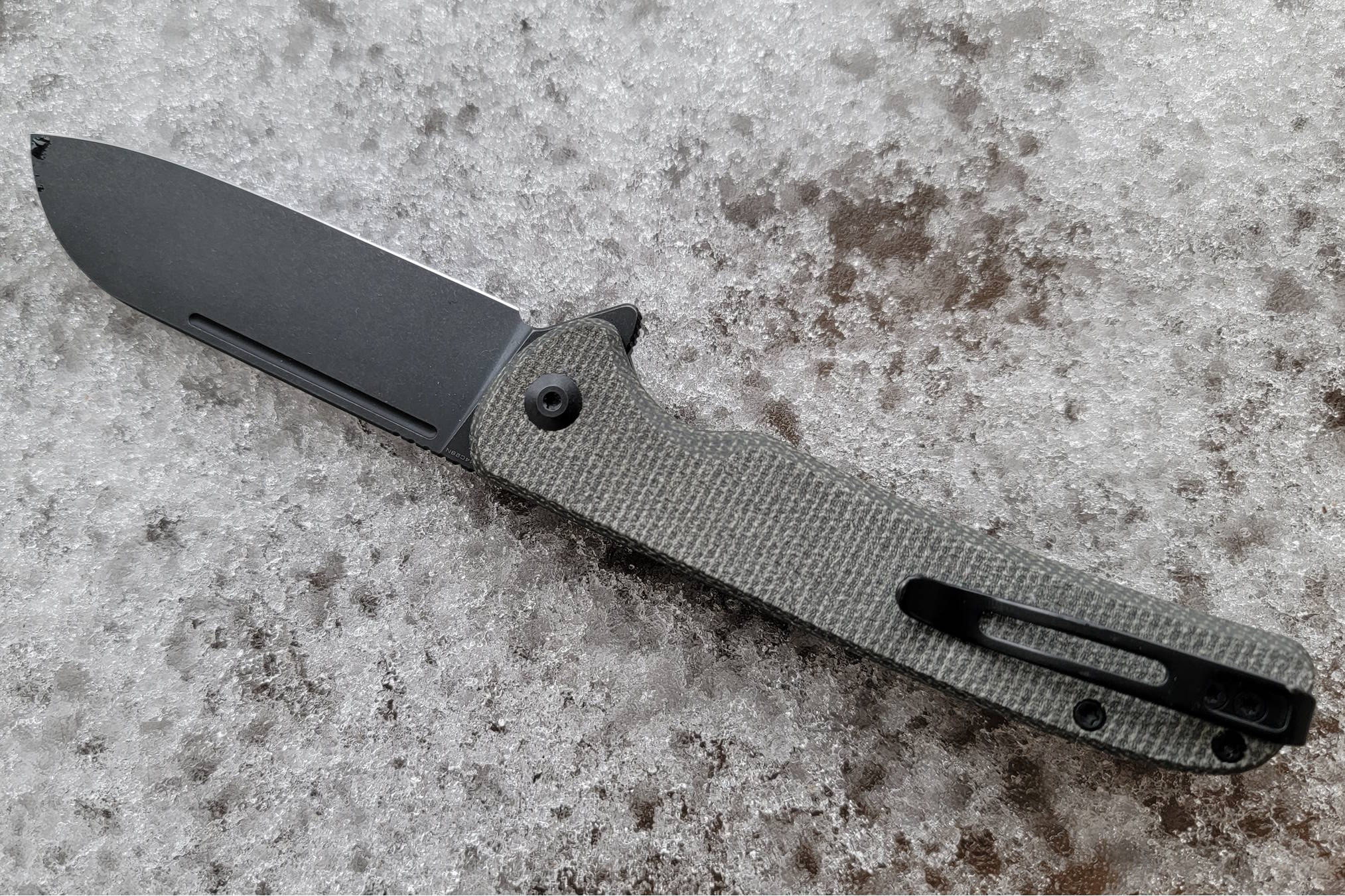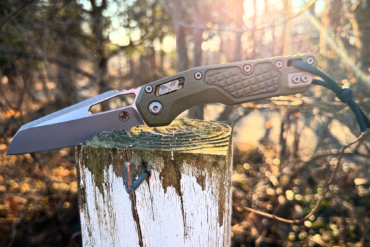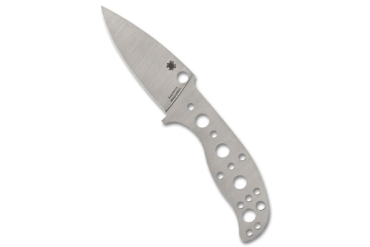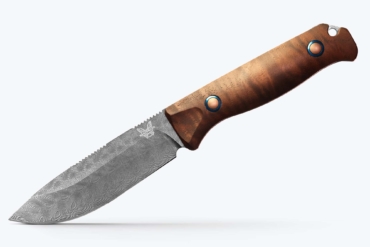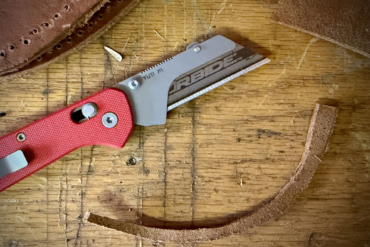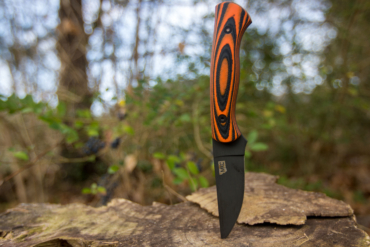The folks at Tactile Knife Co. picked a heck of a name for its first fixed blade: Dreadeye. Dread eye. Drrreadeye … Sounds futuristic, or at least reminiscent of a comic book character.
But the knife itself is no joke. Packing Richlite Micarta, MagnaCut steel, and the option of a KYDEX or formed leather sheath, the Tactile Knife Co. Dreadeye ($199) is an impressive piece of craftsmanship. This company is an offshoot of the folks at Tactile Turn, which built a wildly successful business with its precision-machined pens.
GearJunkie hailed one of the group’s previous knives as the best slipjoint on the market. And now, Tactile is going full tang.
“The Dreadeye has a small form factor that carries well without being obtrusive yet still packs plenty of cutting potential for a variety of tasks,” the company’s press materials stated. “Crafted entirely in-house from the blade to the hardware, we’re proud to offer the Dreadeye in collaboration with Christensen Knifeworks.”
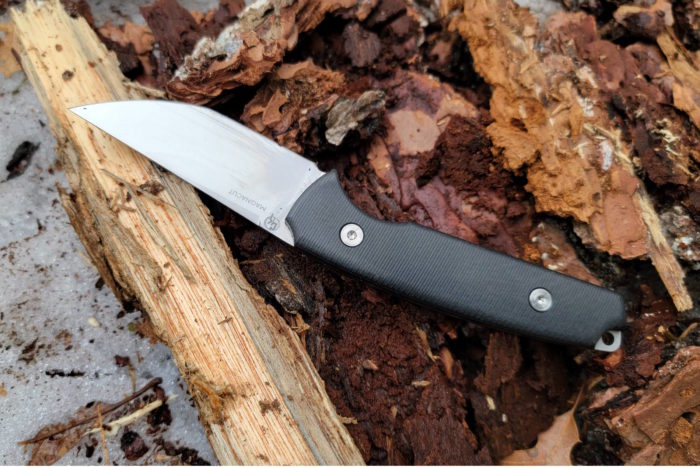
So, let’s check the boxes: a strong design, an outstanding maker, and materials at the cutting edge of the industry. When the company agreed to send a loaner my way for review, I felt like Babe Ruth calling his shot.
In short: The Dreadeye is an outstanding first fixed blade from the folks at Tactile Knife Co. Designer Matthew Christensen has come up with an attractive, cyberpunk blade shape, with the comforts of near-future luxury. The choice of MagnaCut steel helps justify the price, and the overall package is a good one. Just don’t go stabbing at logs with its semi-fine tip, and you’ll be fine.
- OAL: 5.12”
- Blade length: 1.96”
- Blade steel: MagnaCut
- Blade shape: Reverse Tanto
- Grind: Flat
- Hardness: 60-62 HRC
- Lock type: Button Lock
- Carry: Right hand, tip-up, deep carry
Pros
- Excellent grip and look
- Solid cutting performance
- Quality sheath options
- Magnacut!
Cons
- Tip is unsuited to hard use
- Middling food prep
- Leather sheath sheds a bit
Tactile Knife Co. Dreadeye Review
In the hand, the Dreadeye is one of the more comfortable small fixed blades I’ve encountered. The generous index finger cutout is perfectly situated, and the handle is just long enough to suit my medium/large palm.
It’s easy on the eyes too. With its blend of angles and swedges, there’s a very futuristic feel to the entire package. This might be a bit of a reach (and a dead giveaway of my nerdiness), but the downward tilt of the handle immediately reminded me of the phasers from Star Trek.
Look, I even have an old playset to prove it!
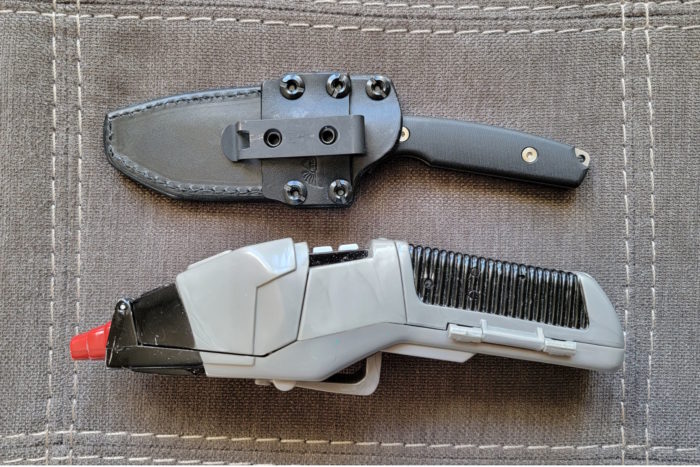
Getting back to reality, the Dreadeye is a solid cutter. Its blade tackled branches, sticks, cardboard, and packaging like a champ, and managed to hold its own in the kitchen. The geometry of said handle and the overall tanto shape isn’t the best for onions and carrots, but it’ll get the job done.
Also, the MagnaCut mystique is real. Going with the comic-book theme mentioned above, this is one of the super-est of super steels currently on the market. It’s corrosion-resistant, tough, and sports an edge that’ll last for ages. Tactile Turn has also included a nice sharpening choil (for when the darned thing finally goes dull).
The handle material deserves a mention as well. The Richlite Micarta is beautifully textured, and I appreciate the overall thickness of the slabs.
A Slippery Slope: Downsides
There are a few downsides to the Dreadeye, but they’re more puzzling than problematic.
First, the leather sheath. I’m a big fan of its shape and construction on the tester. Blade retention is solid, but there’s definitely some shedding going on. Each time I pulled the knife from its sheath, there was an accumulation of tiny, black flecks. Not a big deal, but if you’re going to be using the knife as an all-around camp and food prep tool, you may want to go with the KYDEX.
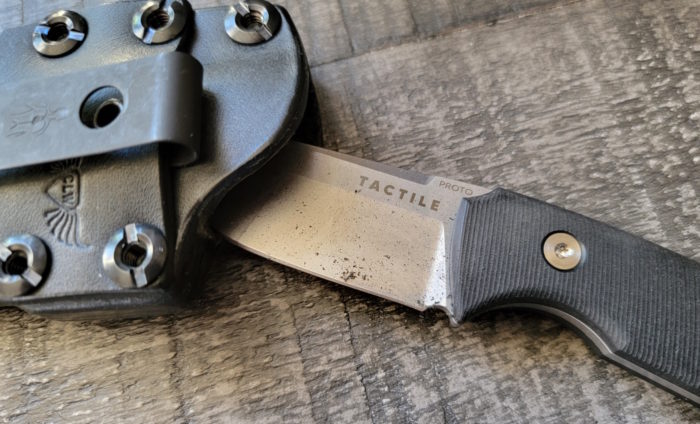
Next is the blade spine. While I appreciate its relative thinness, a bit of jimping would be nice. Also, what’s the point of that swedge just above “Tactile”? Is it solely included for the cool factor? It looks neat, to be fair, but it also narrows out the spine just beneath the natural landing place for your thumb.
Lastly, there’s the somewhat confused use case. Let me state this as clearly as possible: The Dreadeye is an excellent design, and the manufacturing quality is on point.
But small fixed blades are generally looked upon as hard-use/beat-’em-up style knives. Think ESEE Izula-II, for example. I adore the shape, hand feel, and styling of this blade. But tanto is generally made for piercing and, well …
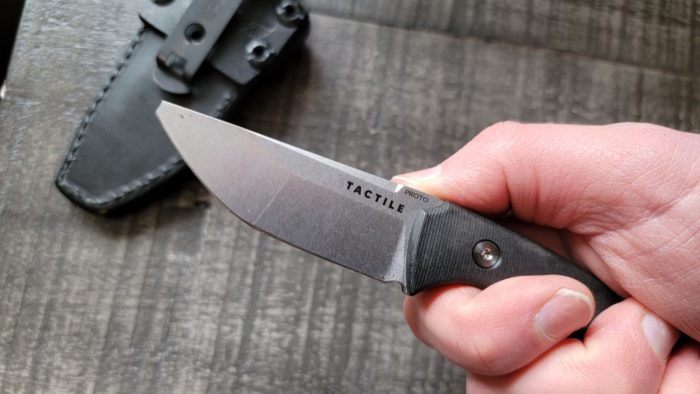
Again, I assume full responsibility for the break here. I was tooling around in the woods, and the knife met a wet log that didn’t agree with it. But in my defense, Tactile Turn’s own marketing photos show the knife stabbing into a piece of lumber that looks much more foreboding than the downed tree in my campground.
Still, I’ve been writing about knives for years, and I should have known better.
Conclusion
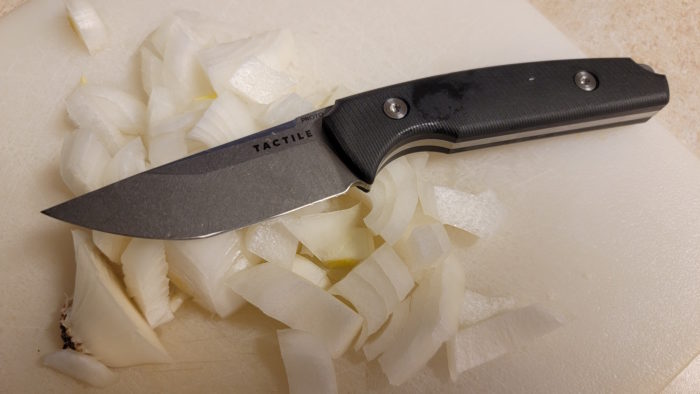
I’m not sure I can convey just how upset I was when the tip of this knife snapped. Because here’s the thing: I really, really like the Dreadeye, and I’d recommend it to anyone searching for a small, medium-duty fixed blade.
There’s such a wonderful aesthetic here and a clear vision from designer Matthew Christensen.
So, don’t take my jackassery as a point against Tactile Knife Co.’s first fixed blade. It’s a quality company making quality products, and it was very understanding about this mishap.
Instead, learn from my mistake — do not stab and pry with your knives, unless the tip is built like a truck.
Taken on its own, the Dreadeye is a beautiful tool. The edge is gorgeous, the handle is comfortable, and there’s a ton of knife-nerd stuff to love here.
If you’re ok with, y’know, using your knives like a sensible human being, then you’re going to like the Dreadeye. The overall cohesion of its use case may not be a 500-foot home run, but it’s definitely a solid triple.

